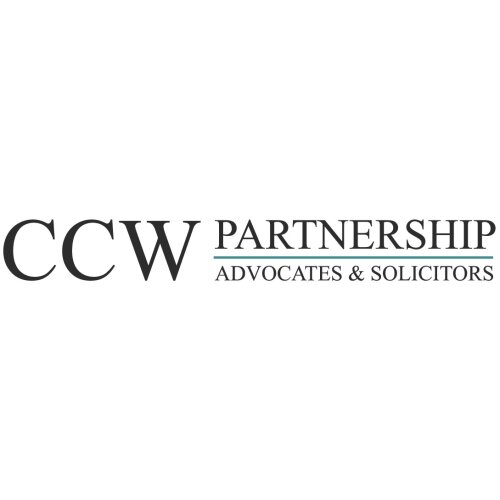Best Corporate & Commercial Lawyers in Brunei
Share your needs with us, get contacted by law firms.
Free. Takes 2 min.
Or refine your search by selecting a city:
List of the best lawyers in Brunei
About Corporate & Commercial Law in Brunei
Corporate and commercial law in Brunei covers the legal rules and practices governing the creation, operation, and regulation of businesses and commercial transactions in the country. It addresses a range of subjects, including company formation, management, regulatory compliance, commercial contracts, mergers and acquisitions, joint ventures, foreign investment, and dispute resolution. Brunei's approach to corporate and commercial law is influenced by its Islamic legal traditions as well as English common law principles. Understanding this field is crucial for entrepreneurs, business owners, investors, and professionals operating in or with Brunei.
Why You May Need a Lawyer
There are several situations where seeking the advice of a corporate and commercial lawyer is important in Brunei:
- Starting a new business and registering a company
- Drafting, reviewing, or negotiating commercial contracts or agreements
- Complying with local business licensing and regulatory requirements
- Handling mergers, acquisitions, or restructuring of businesses
- Navigating foreign investment rules and approvals
- Resolving business disputes, either outside or inside of court
- Protecting intellectual property or brand assets
- Managing employment and labour law matters related to your business
- Ensuring compliance with anti-money laundering and anti-corruption regulations
- Accessing government incentives or investment grants
A lawyer specializing in corporate and commercial law can help ensure compliance, minimize risks, and provide guidance for business growth and sustainability.
Local Laws Overview
Brunei's legal system for corporate and commercial matters is primarily governed by statutes, regulations, and guidelines issued by government authorities. Key laws and regulatory bodies include:
- Companies Act (Cap. 39) - sets the legal framework for company formation, management, and dissolution.
- Business Names Act - governs the registration and use of business names by companies and individuals.
- Insolvency and Bankruptcy laws - oversee financial distress, restructuring, and liquidation of businesses.
- Employment Order, 2009 - sets out rules regarding the employment relationship between employers and employees.
- Anti-Money Laundering Order and Anti-Corruption laws - aim to keep the financial and corporate sectors compliant and free from illicit activities.
- Authority for Info-communications Technology Industry of Brunei Darussalam (AITI) - regulates technology, communications, and digital business sectors.
- International Business Companies (IBC) Act - provides for the setting up of offshore companies for international business.
Foreign businesses and investors must comply with additional requirements, including approvals from the Brunei Economic Development Board (BEDB) and licensing from relevant ministries. Shariah principles may also influence certain aspects, given Brunei's Islamic jurisdiction, especially for Islamic financial products and halal business operations.
Frequently Asked Questions
What are the main business entities available in Brunei?
Brunei offers several business structures, the most common being sole proprietorship, partnership, private limited company, branch of a foreign company, and International Business Company (IBC) for offshore purposes. Most local and foreign investors use private limited companies or IBCs.
How do I register a new company in Brunei?
You need to reserve your company name and register with the Registrar of Companies and Business Names (ROCBN). This process includes preparing founding documents, paying relevant fees, and meeting local director or shareholder requirements depending on your business type.
Can a foreigner own a business in Brunei?
Yes, foreigners can own businesses in Brunei, often through private limited companies or IBCs. However, some sectors may require joint ventures with local partners or special approvals for full foreign ownership.
What are the minimum requirements for private limited companies?
A private limited company in Brunei requires at least two shareholders and two directors, with at least one director residing in Brunei. The company must have a registered address and comply with local statutory obligations.
What taxes apply to companies operating in Brunei?
Brunei does not impose corporate income tax on most businesses, except for those in the oil and gas and related sectors. There is no value added tax or goods and services tax. Payroll taxes and certain stamp duties may apply.
How are business disputes resolved in Brunei?
Disputes can be resolved through negotiation, mediation, arbitration, or litigation at the Brunei courts. For certain commercial conflicts, especially those involving foreign parties, arbitration and alternative dispute resolution are commonly used.
Is there any restriction on repatriation of profits for foreign investors?
Generally, there are no restrictions on remitting profits, dividends, or capital out of Brunei. However, compliance with anti-money laundering and tax reporting obligations is required.
What regulations cover employment and human resources?
The Employment Order, 2009, and related regulations set out rules on contracts, wages, working hours, termination, and other aspects of employment. Businesses must also comply with immigration requirements for foreign workers.
Is Islamic finance regulated differently from conventional finance?
Yes, Islamic finance and banking operations comply with Shariah principles and are regulated by relevant authorities, including the Brunei Darussalam Central Bank. This affects contract structures and financing arrangements.
Are there local content requirements or incentives for foreign investors?
Some sectors require local shareholding or partnership. The government, through organizations like BEDB, provides incentives such as tax exemptions, grants, and infrastructure support for qualifying projects and investments.
Additional Resources
If you need more information or support regarding corporate and commercial matters in Brunei, you may find these resources useful:
- Registrar of Companies and Business Names (ROCBN) - Responsible for company and business name registrations
- Brunei Economic Development Board (BEDB) - Provides guidance on investment and incentives
- Ministry of Finance and Economy (MOFE) - Regulates corporate finance and economic policy
- Authority for Info-communications Technology Industry of Brunei Darussalam (AITI) - Regulates the tech sector
- Brunei Darussalam Central Bank - Supervises banking and financial services, including Islamic finance
- Employment Agencies and Ministry of Home Affairs - For employment, immigration, and labour matters
- Brunei Darussalam Arbitration Centre (BDAC) - Supports alternative dispute resolution
- Legal firms specializing in corporate and commercial law in Brunei
Next Steps
If you believe you require legal assistance in corporate and commercial matters in Brunei, consider the following steps:
- Clearly identify your legal needs, such as forming a company, negotiating a contract, or resolving a dispute
- Gather relevant documents and information related to your business or legal issue
- Consult a qualified local lawyer or law firm with experience in corporate and commercial law
- Prepare a list of questions and objectives to discuss during your consultation
- Follow the advice provided to ensure compliance and protect your interests
- Stay informed about updates to relevant laws and regulations that may affect your business
Getting professional legal guidance is a crucial step when operating a business or undertaking commercial activities in Brunei. It will help you avoid costly mistakes, meet all regulatory requirements, and build a strong foundation for your business activities.
Lawzana helps you find the best lawyers and law firms in Brunei through a curated and pre-screened list of qualified legal professionals. Our platform offers rankings and detailed profiles of attorneys and law firms, allowing you to compare based on practice areas, including Corporate & Commercial, experience, and client feedback.
Each profile includes a description of the firm's areas of practice, client reviews, team members and partners, year of establishment, spoken languages, office locations, contact information, social media presence, and any published articles or resources. Most firms on our platform speak English and are experienced in both local and international legal matters.
Get a quote from top-rated law firms in Brunei — quickly, securely, and without unnecessary hassle.
Disclaimer:
The information provided on this page is for general informational purposes only and does not constitute legal advice. While we strive to ensure the accuracy and relevance of the content, legal information may change over time, and interpretations of the law can vary. You should always consult with a qualified legal professional for advice specific to your situation.
We disclaim all liability for actions taken or not taken based on the content of this page. If you believe any information is incorrect or outdated, please contact us, and we will review and update it where appropriate.
Browse corporate & commercial law firms by service in Brunei
Brunei Attorneys in related practice areas.
Browse corporate & commercial law firms by city in Brunei
Refine your search by selecting a city.














